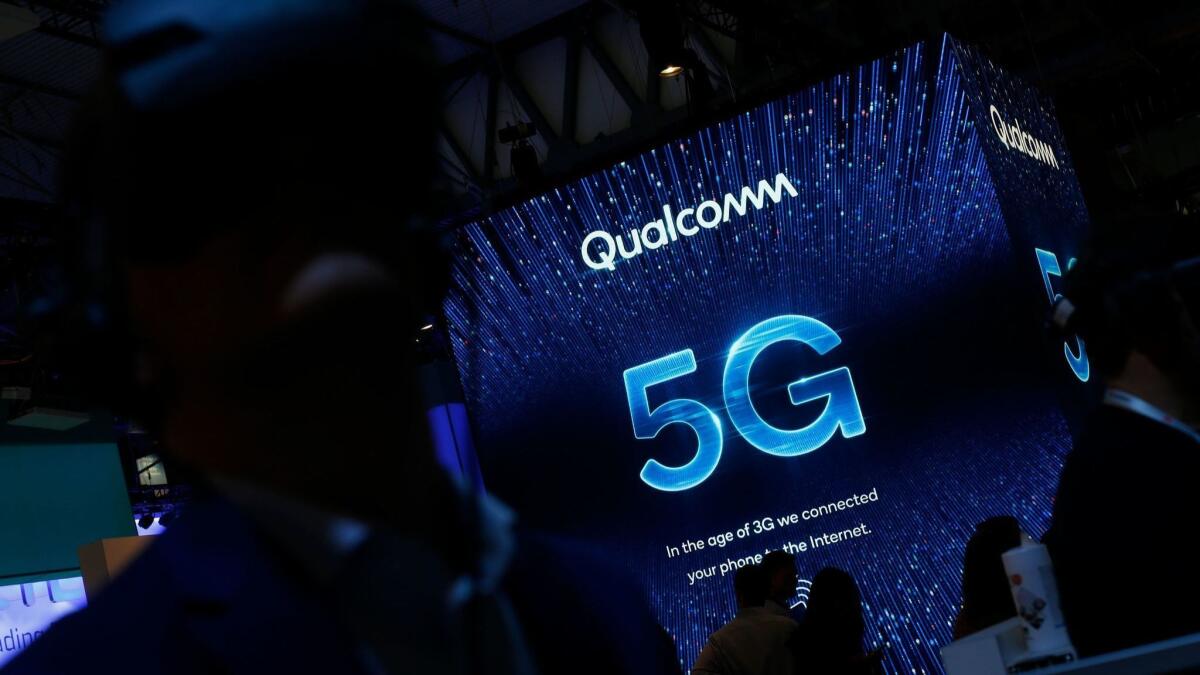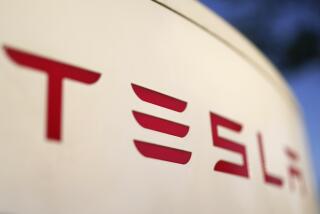Qualcomm wins and Apple loses the first U.S. jury trial in their global patent dispute

Qualcomm Inc. won the first U.S. jury trial in its global dispute with Apple Inc. over how much the iPhone maker should pay for using the chipmaker’s patented technology.
A federal jury in San Diego on Friday awarded Qualcomm about $31.6 million in damages on its patent infringement claims.
The outcome boosts Qualcomm’s contention that its technology provides significant value to smartphones beyond the basic ability to connect to a telecommunications network. Still, it’s one small part of a global battle between the companies that is headed for a bigger test next month. Billions of dollars are at stake in that trial, which goes to the heart of the licensing dispute between the tech giants.
“Qualcomm’s ongoing campaign of patent infringement claims is nothing more than an attempt to distract from the larger issues they face with investigations into their business practices in U.S. federal court, and around the world,” Apple spokesman Josh Rosenstock said in a statement. “While we are disappointed with the outcome, we thank the jury for their service in this case.”
Qualcomm shares climbed 2.2% on Thursday to $56.60. Apple shares lost some of the day’s gains after the jury decision, but still closed up 1.3% at $186.12.
The disputed patents pertain to technology for graphics processing and battery power conservation, which San Diego-based Qualcomm says improve smartphones’ efficiency and reduce their cost. The infringement verdict covers the iPhone 7, 8 and X — not the latest models. Qualcomm can now ask the judge for an order to halt further infringement of its patents by Apple. U.S. courts have been unwilling to order outright sales bans and favor financial remedies.
“Today’s unanimous jury verdict is the latest victory in our worldwide patent litigation directed at holding Apple accountable for using our valuable technologies without paying for them,” Don Rosenberg, Qualcomm’s general counsel, said in a statement. “The technologies invented by Qualcomm and others are what made it possible for Apple to enter the market and become so successful so quickly.”
The damages awarded Friday aren’t significant to either company. But from Qualcomm’s perspective, valuing just three of its more than 10,000 patents at $1.41 per phone shows the overall worth of its inventions. About 1.4 billion smartphones were sold last year, according to research firm IDC.
In the broader licensing fight, Qualcomm has lost billions of dollars in revenue after Apple, through its Asian manufacturers, stopped paying patent royalties in 2017. The companies had a falling-out in 2016 when Qualcomm — which had been the exclusive supplier of iPhone chipsets for five years — halted quarterly royalty rebates it had been paying Apple. The chipmaker has said it ended the rebates because Apple instigated antitrust investigations of Qualcomm and lied to regulators.
Cupertino, Calif.-based Apple has switched to using Intel Inc. chips in its phones. The iPhone maker has accused Qualcomm of using its control over “standard essential” patents — which cover technology uniformly adopted by telecommunications providers and equipment makers — to extract excessive royalties for the entire patent portfolio, including nonessential patents, that it licenses to smartphone makers.
In yet another dispute, the Federal Trade Commission accused Qualcomm of monopolist business practices, the initial volley in a web of litigation that now spans three continents. A judge in San Jose has yet to rule on the antitrust allegations following a 10-day non-jury trial in January.






